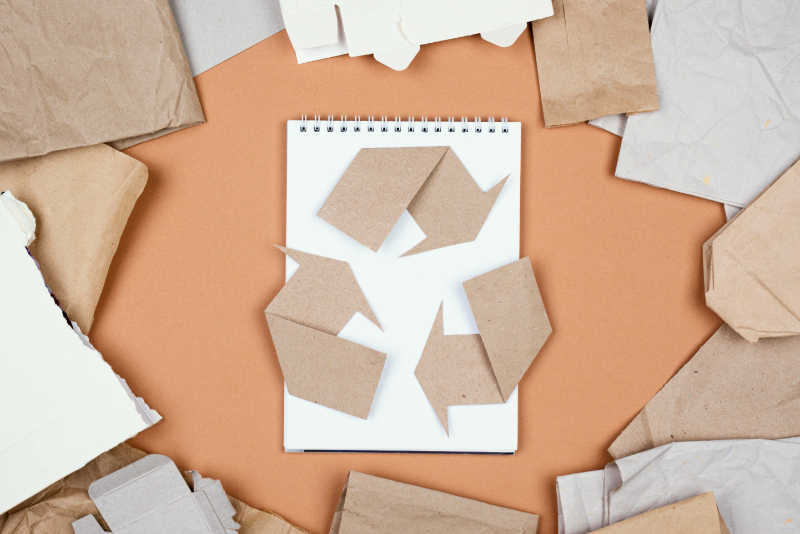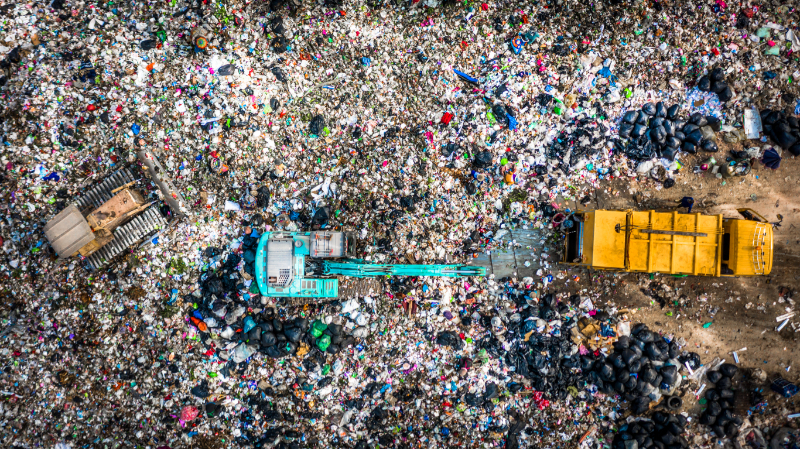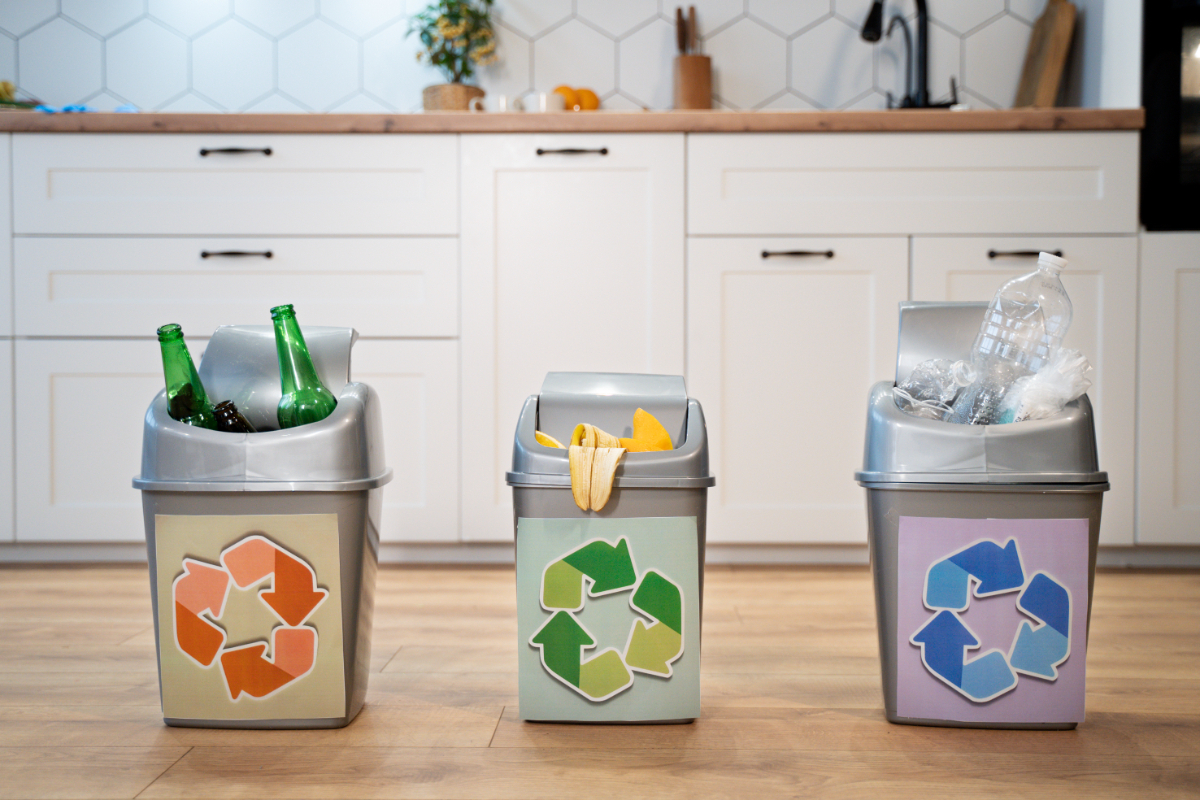Have you been asking: Why is it important to recycle domestic waste? This article looks at the most commonly recycled items and reasons to recycle household waste. House Clearance Hertfordshire offer house clearance in Royston, Cambridge & Hertfordshire. Find out more about household waste recycling.
The Importance of Recycling Household Rubbish
The number of materials and rubbish that the UK throws away on a consistent basis has always been a cause for concern, and the amount only increases by the year, worsening with our population numbers and everchanging lifestyle choices. Recycling is a process that we utilise to take unwanted clothes, kitchen waste or other waste products and reuse them, turning them into brand-new resources and items.
Across the country, there are numerous businesses and domestic households that recycle, yet we still must increase the numbers involved and encourage others to be mindful of what they are throwing into regular waste bins. As global warming becomes an ever-growing problem, we and our local authorities must make it our mission to collect as many recyclable materials and rubbish items as possible to avoid filling up landfill space.
The recycling industry has a dramatic effect on our Earth, and it is often a topic that some people struggle to get to grips with, as they mindlessly throw more waste away that could be placed into recycle bins. The most significant reason why recycling is something we must carry out is that it saves energy that may have been used for processing raw materials.
When we take valuable materials from our Earth, we reduce large quantities of our natural resources, and often to retrieve these sources, we have to resort to methods that result in harmful gas emissions, like fossil fuels and greenhouse gas emissions, filtering into our atmosphere and heavy pollution. These lead to a drastic increase in the global temperature and cause the climate to continue rapidly changing at an unmanageable pace.
Swift changes to the global temperature can result in natural disasters and dramatic weather disruptions. Animals will lose their habitats, and poor countries will become some of the most affected areas as they do not have the resources to recycle waste products in the high-tech ways that we can, or they simply cannot afford such methods.
When recycling at home or in educational buildings, it's best to get kids involved in the process to tackle climate change so that they understand the value of the practice and can make a huge difference in the environment.
What are the most commonly recycled items?
Regarding the nature of recycling, you'll find there are numerous products that are more universally recyclable than others. Some materials, when recycled, don't experience any reduction to their quality once recycled, so they can be continuously remade into new products without compromising on durability.
If you are unsure of which materials to recycle when taking your waste out to the bins, these are the materials that are no cause for concern.
Aluminium
One of the most easily recycled materials is aluminium, and this makes drinking canned beverages much easier to dispose of. Drink cans are easily transformed into new aluminium cans, and during the process, there is no loss of quality in the material. Metal cans can also be made into car bodies, bike parts, household appliances, and much more.
Paper & cardboard
The most common materials and products recycled are paper and cardboard, and they are incredibly easy to recycle and reuse, unless they are soiled, enveloped in excessive amounts of tape, or have significant embellishments that are hard to remove.
You'll find that it is very easy to recycle newspapers made in the UK as soon as you and your household have finished reading them as they are made entirely from recycled office paper.

Glass
Glass is a relatively straightforward material to recycle, and it can be melted down and shaped into various other products, such as jars, glass water bottles, coffee tables, lighting fixtures and other furnishings, along with road surfaces. Making glass products with recycled glass is far cheaper and uses less energy than it would be to use raw materials.
What are the hardest things to recycle?
Products and items that are impossible or challenging to recycle are often that way due to the combination of materials they are constructed out of. Once the products reach the recycling plant, the detection process becomes difficult.
An obvious example of this is a Pringles tube, and this is because the new packaging contains plastic, metal, foil, and cardboard; many of these materials can be recycled on their own, yet when paired together and shaped into a product they are hard-to-recycle. Some of the most common products or materials that struggle to be recycled include the following:
The reason why black plastic products, such as plastic containers, ready meals and food trays, are challenging to recycle is that recycling plants typically have sensors installed into their machinery, and these sensors use infrared that cannot adequately pick up dark plastics. Black plastic waste often gets discarded as regular waste.
Plastic bottles of cleaning products are difficult to recycle, especially if they are in the form of a spray bottle, as inside a spray bottle, you'll find there is a metal spring mechanism that allows the handle to be pulled backwards, and this makes these items much harder to recycle.
Products like toothbrushes and toothpaste tubes typically cannot be recycled, therefore they are thrown in waste bins and end up in landfills. Major manufacturers like Colgate, are taking steps to introduce new ideas and initiatives that enable dental products to be more recyclable.
Whilst it's an excellent material for wrapping sandwiches, clingfilm isn't good for the environment. Much like plastic shopping bags, its stretchy nature means it can get caught in between manufacturing machinery, making it impossible to recycle and therefore it cannot be reused.
Bubble wrap is plenty of fun to pop and play with; however, they aren't a recyclable material. If unpopped, they can be used again and again to store or wrap your goods and valuables, especially when sending gifts off in the mail or transferring fragile ornaments.
Many companies are looking into the best ways to make eco-friendly nappies that are efficiently disposable; however, until manufacturers can innovate such ideas and materials, these products cannot be recycled as they are a biohazard.
When it comes to wrapping fruit, many manufacturers will use little nets, which is what you often find your oranges, avocadoes, satsumas and many more fruits and veg inside.
However, this material cannot be recycled, and much like the plastic rings that are used to keep cans linked together, they pose a big hazard to our natural wildlife if they are discarded without being properly disposed of. Animals can get caught in them and we may lose them as a risk.
Reasons to Recycle Household Waste
The local authority must encourage homeowners to recycle their everyday waste for a broad range of reasons, many of which result in massive environmental benefits.
Protect Animal & Human Life
To keep our neighbourhoods and communities clean and safe, it's best to recycle and dispose of waste properly. Not only will proper disposal help save nature, but it protects those in the area from contracting harmful diseases that animals possess.
Some cities by the sea can mishandle waste, resulting in air and water pollution, which is incredibly damaging to the sea life living below and the wildlife that grows on the seabed.
To prevent the loss of significant species for future generations, we must recycle as many materials and unwanted products as possible.

Reducing Pollution
As mentioned many times before, the more products we collectively recycle, the less companies will need to invest in new products and materials for their businesses and households.
Through utilising recycled goods, we help save energy by generating new products and obstructing our surroundings in aid of gathering new materials.
Reducing Air Pollution
Recycling helps us to drastically reduce the level of air pollution, so it is far better for businesses and companies to select recycled materials for their building projects, as opposed to raw materials.
Utilising pre-recycled products mitigates the issue and reduces the amount of toxins and carbon dioxide emissions that are released into our environment's atmosphere.
Property Values Thrive
If you are part of a community that actively and consistently recycles its waste, you are helping to successfully reduce our Earth's need for landfills. Landfills are intended to be utilised for waste that cannot be recycled, and when all waste that should be recycled is collected, that will typically leave a small amount of waste for the landfill.
Homes that are situated near landfill sites are much lower in value, as they create an unpleasant view, and nobody wants to look out of the window to see a rubbish tip. By ensuring you and your neighbours recycle consistently, you can effectively increase the value of your property and reduce the need for extensive waste in landfills.
Reducing the Amount in Landfills
Approximately 75% of our rubbish that ends up in landfills are products that can be recycled to be used again and filtered through our ecosystem in a more ethical way.
Our landfills are gradually running out of space, meaning the earth is becoming saturated with these large holes that collect our waste, and it should only consist of waste that we cannot recycle.
You must ensure that all your domestic and commercial waste is precisely separated into what can be recycled and what cannot as this conserves the energy needed.

If you require House Clearance services in Royston, Cambridge or Hertfordshire, contact us today. We can discuss what you would like to be collected and your preferred due date.
We'll get back to you with a free no-obligation quote that matches your budget.

